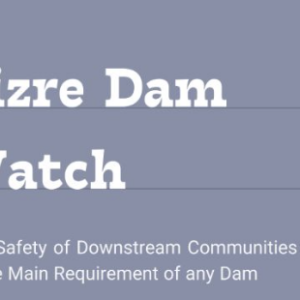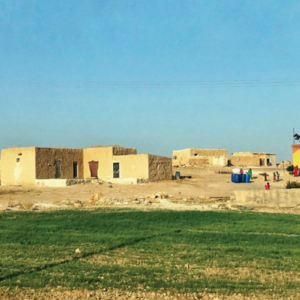Iraq, situated between the Tigris and Euphrates rivers, abundant and fertile, is the cradle of civilization and the birthplace of writing. It is witnessing increasingly severe and extreme climatic events, exacerbating environmental fragility and water scarcity. The Tigris and Euphrates basin experienced the second lowest rainfall in 40 years, and with the construction of dams in neighboring countries, the flow rate of water in the rivers decreased by 29% and 73% respectively in Iraq. The harsh impact of climate change threatens food security.
The UN report -6GEO, issued by the United Nations Environment Programme (UNEP) in 2021, classified Iraq as the fifth most climate-affected country. Climate change in Iraq has had profound effects on its environment, security, and politics, leading to rising temperatures, severe droughts, worsened economic challenges, decreased rainfall, increased desertification, land salinization, and more frequent dust storms.
Furthermore, the change in climate patterns has affected Iraq’s agricultural sector, while its water security relies on the deteriorating Tigris and Euphrates river system. National and regional political instability will make mitigating and addressing the impacts of climate change exceedingly difficult. Climate change, including rising temperatures, decreased rainfall, and increased water scarcity, is likely to have serious ramifications for Iraq in the coming years.
To combat drought, the Iraqi government has made significant efforts, including joining international efforts to address the impacts of climate change by officially acceding to the famous Paris Agreement by 2020, following a series of national and global discussions. The accession law was published in the Official Gazette (Al-Waqa’i’ al-Iraqiyah) under number 4618, Law No. 31 of 2020, on Iraq’s accession to the Paris Agreement, annexed to the United Nations Framework Convention on Climate Change of 1992.
Iraq submitted its Intended Nationally Determined Contributions (INDC) to the Paris Agreement in 2015 as a goodwill gesture, followed by submitting a Nationally Determined Contributions (NDC) to COP 25 in Madrid in 2019.
Iraq participated in the 26th Conference of the Parties (COP26) and reaffirmed its commitment to reducing greenhouse gas emissions causing global warming. The delegation, led by Minister of Environment Dr. Jasim Al-Falahi, stated that Iraq has taken steps towards a greener economy by investing in natural gas and allocating 12 gigawatts of renewable energy. With support from the United Nations Development Programme, the Iraqi government completed its NDC report, addressing climate change mitigation and adaptation. This document serves as a framework for climate action in the country, pledging voluntary reductions of 1-2% in industrial carbon dioxide emissions and opening a $100 billion investment window in the green economy. At COP26, Iraq focused on its NDCs to enhance sustainable development and ensure environmental integrity and transparency.
You can read the paper below…





Leave a Reply